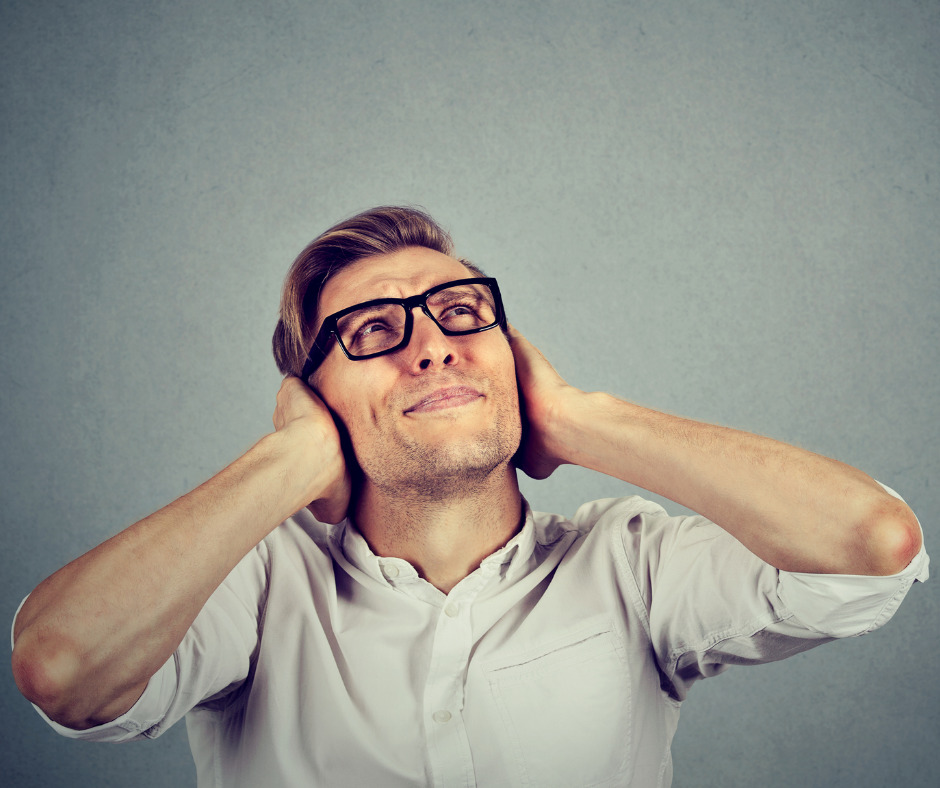Almost half of people over 65 have some degree of hearing loss.[1]
And scientists have found a surprising reason why so many seniors are going deaf.
Yes, the ear-splitting rock concerts from years ago may have taken their toll…
But there’s another culprit as well, one that may be even more harmful.
Experts at the American Academy of Otolaryngology/Head and Neck Surgery Foundation say that the one thing people do most often to maintain their ear health actually can damage their hearing.
Many of us routinely clean our ears with cotton swabs. We’ve done it since we were children. But this is a bad idea, according to the foundation.[2] [3]
4 Reasons to Keep Cotton Swabs Out of Your Ears
Here’s why you should never put a Q-tip or another brand of cotton swab in your ear canal:
1.) Ears are self-cleaning. Earwax, referred to by doctors as cerumen (pronounced suh-ROO-mun), contains waxy oils produced by your glands. It also contains keratinocytes, or dead skin cells.
Cerumen naturally migrates from the inner to the outer ear—carrying dead cells with it. This is the ears’ natural cleaning process. Moving your jaw when you talk or eat helps cerumen move outward to clean your ears.
Using a cotton swab can actually impede this process. It can push ear wax farther into the ear canal. Clumps of earwax can be pushed into the eardrum, causing pain and hearing loss.
2.) It can cause injury and pain. Inserting a cotton swab—or any other home instrument—in the ear can harm the ear canal or eardrum. People sometimes puncture their eardrum with a cotton swab. This causes temporary pain and hearing loss. Over time, it may cause hearing to permanently degrade.
3.) It increases risk of ear infections. Earwax contains lysozyme. This is a natural antibacterial enzyme. It prevents bacteria and infectious organisms from reaching your inner ear. When you remove earwax, you leave yourself vulnerable to ear infections, which can lead to hearing loss.
4.) Earwax is a natural moisturizer. It prevents the skin inside your ear from drying out. When you remove it, your ears may become dry, itchy, and irritated. And when you scratch them, you may introduce infection-causing germs into your ear canal.
The Safe and Natural Way to Remove Ear Wax
If you look closely at the packaging of cotton swabs, you’ll find a surprising message in fine print: “Do not insert swab into ear canal. Entering the ear canal could cause injury.”[4]
Of course, people do this anyway. They assume that’s what cotton swabs are for. But why risk damaging your hearing if the earwax is not causing a problem?
If you do have a build-up of wax that seems to be causing hearing problems or pain, try this safe home remedy.
Put two or three drops of olive oil into the blocked ear. Tilt your head and let them sit there for a few minutes. Then lie down and tilt your head in the opposite direction. Allow the oil to drip out onto a towel.
This will soften and remove impacted earwax. You can repeat this as needed.[5]
This same procedure can be used for earwax maintenance. Do it once a week to prevent buildup.
If the olive oil method doesn’t work and you have a serious build-up of earwax, see your doctor or an ear, nose, and throat specialist. A healthcare provider can use medical instruments specifically designed to safely remove earwax without injuring your ear canal.[6]
One more thing…
If you want to help prevent hearing loss as you grow older, make sure that you are getting enough iron.
A study of more than 300,000 adults in Pennsylvania found that people with iron deficiencies were nearly 2-½ times more likely to have hearing loss compared to those with normal iron levels.
Editor’s Note: Discover natural, non-drug methods to transform your health. Read our monthly journal, Independent Healing. It’s your best source for unbiased, evidence-based medical information. For more information, click HERE.
Related Articles
It’s Secretly Stealing Your Hearing
Hearing Going? You Need to Do This.
Pain Relievers Can Damage Your Hearing, Study Finds
References:
[1] http://www.healthline.com/health/age-related-hearing-loss#overview1
[2] http://www.entnet.org/sites/default/files/uploads/PracticeManagement/Resources/_files/earwax_dos-donts_cobranded-v2.pdf
[3] http://www.bbc.com/news/health-26527266
[4] http://www.health.harvard.edu/blog/3-reasons-to-leave-earwax-alone-2017051711718?utm_source=delivra&utm_medium=email&utm_campaign=WR20170519-Hearing&utm_id=502668&dlv-ga-memberid=28035839&mid=28035839&ml=502668
[5] http://american-hearing.org/disorders/ear-wax/
[6] http://www.goodhousekeeping.com/health/a25385/earwax-facts/

